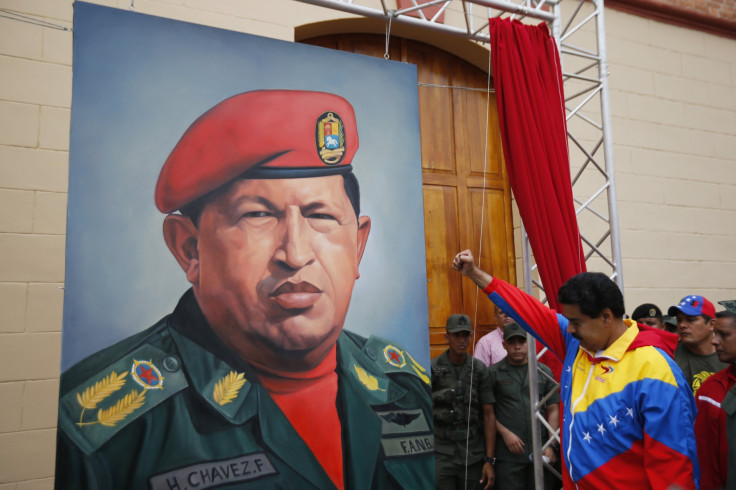Venezuela's Nicolas Maduro Seizes Control Of Spiraling Economy Under New 'Special Powers'

Venezuela’s President Nicolás Maduro got his wish granted when the country’s National Assembly awarded him special powers to change laws by executive orders for a year – a period in which Maduro wants to put an end to the “economic war” that, according to supporters for former president Hugo Chavez, is the real reason behind Venezuela’s current economic crisis. Under this concession, Maduro will be able to, among other things, strengthen price controls, change trade laws, control exports, establish a rationing system, control the financing of political parties, and install any other measures to fight those “foreign powers that want to destroy our nation through economy, politics and media.”
In essence, the president will be allowed to enact any such legislation on his own, without the Assembly’s (Congress) permission. "What you have seen is little compared to what we will do to defend the people and their rights," Maduro warned on Tuesday night after he received the powers to rule by decree. The president has also accused his opponents of trying to destabilize his administration ahead of next month’s municipal elections. Maduro’s first executive orders are aimed at “protecting the economic freedom and the socio-economic rights of the working people,” as he noted in his speech from the Presidential Palace in Caracas.
The Law of Cost, Earnings and Fair Prices, the first approved order, will seek “to protect consumers and the people’s wages” -- meaning that it imposes a limit on prices. The entire text of the law was not made public, but Maduro said that profit margins would be limited to 30 percent over the manufacturing price of any product. Last week, Maduro ordered stores across Venezuela to cut prices by more than half and also declared that up to 100 “parasitic bourgeois managers" would be jailed for “usury.” The second law marked the creation of two national entities, the Center for Foreign Trade and the Corporation for Foreign Trade. Both institutions will work together to control trade and foreign imports.
Maduro also vowed more support for education, establishing 10,000 university scholarships and the promise of a tablet for every Venezuelan student. The president, who succeeded Chavez upon the latter’s death in March of this year, has been blasted by critic and opponents for attempting to increase his control over the economy, which is suffering under very high inflation (54 percent annually), a plunging currency and a nationwide shortage of basic goods, like toilet paper, milk and cooking oil.
"Maduro is continuing with the plan to instate a Cuban-style socialism that Chávez left incomplete,” Professor Margarita López-Maya, a sociologist at Venezuela's Central University, told The Guardian. “This advance implies a statist model economy, with more interventions and the creation of new institutions. The Venezuelan economy as we knew it is being destroyed.” Opposition leader Henrique Capriles condemned the new laws, calling them "corrupt.” “Venezuelans must defeat corruption in December's [municipal] elections", he said. Capriles was referring to the fact that Maduro gained a two-thirds majority in the Assembly only after an opposition lawmaker was removed from her seat and replaced by a Chavez-Maduro loyalist.
Maduro denied that his measures will only worsen the ongoing economic turmoil and exacerbate the scarcity of certain products. "It is untrue that there will be shortages, false. We have controlled the storage systems of all these companies and they are full. We have reserves for more than a year," he said. But some observers support Maduro’s assumption of such extraordinary powers as an answer to the chaos engulfing Venezuela. "We are facing a real and deep economic crisis,” said Nicmer Evans, a political analyst. “Ruling by decree allows the president to do in months what it would take the Assembly years. It has none of the parameters of socialism. It is [a return] to normal capitalism because it is not normal that Venezuelans pay 1,000 percent over [a product’s cost]."
But Evans warned that Maduro will need to keep his base of political support happy. "If he fails at that – and fails to engage with business and industry – we'll surely face a decrease in imports, more shortages and the collapse of the whole house of cards," Evans stated.
© Copyright IBTimes 2024. All rights reserved.





















